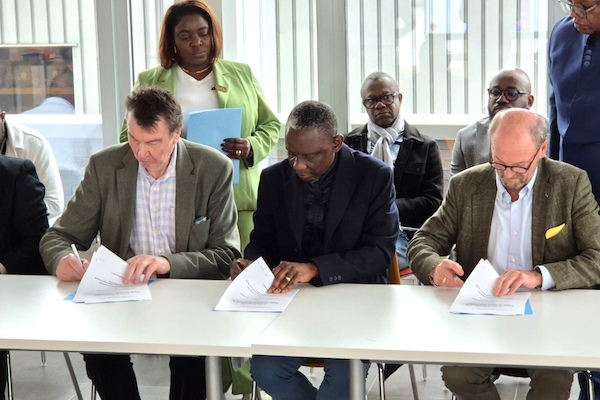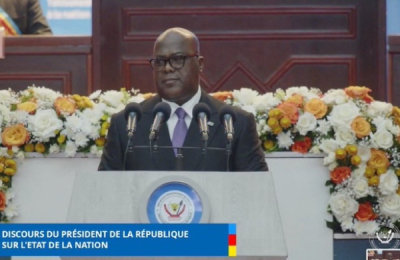The Democratic Republic of Congo’s Minister of Infrastructure and Public Works, John Banza Lunda, signed a letter of intent and a cooperation agreement in Belgium on October 8, 2025, with a group of companies known as the Kinshasa Tramways Consortium. The signing marks an early step toward a Public-Private Partnership (PPP) contract for a tramway system in the capital, scheduled for November 2025, according to the Agence congolaise des grands travaux (ACGT).
The Kinshasa Tramways Consortium comprises three firms: Powerchina, which operates in the DRC under the name Sinohydro and has worked on major projects such as road construction and the 150-MW Zongo II hydroelectric plant powering Kinshasa; Prume Tramways RDC, on which little public information exists but which was cited in the ACGT’s 2021 annual report for conducting a tramway feasibility study that same year; and the Belgian company Frateur De Pourcq, founded in 1867 and globally recognized for its expertise in manufacturing railway tracks for trains, tramways, and amusement parks, including its patented prefabricated hybrid rail system.
In a parallel initiative, Congolese firm Congo Trans S.A.R.L. is developing its own $205 million, three-line tramway project for Kinshasa. In June 2025, the company signed a Memorandum of Understanding (MoU) with Moroccan engineering firm Balkan Ingénierie S.A.R.L. for engineering and project-supervision services, valued at 4% of the total cost, or roughly $8.5 million. Under the terms of the protocol, 10% of the total amount — or $820,000 — was expected to be disbursed upon signing. However, according to officials at Congo Trans, the payment has yet to be made, as the company remains in talks with a local bank to secure project financing.
The Congo Trans project includes three routes: Gare Centrale-Kintambo Magasin, Gare Centrale-N’djili Airport, and N’djili Airport-N’sele. It also covers the construction of tram stations, maintenance depots, workshops, a training center, and parking facilities. The agreement provides that at least 95% of the workforce will be Congolese, with a minimum of 50% women, and that a local training center will be created to develop domestic expertise.
These initiatives target Kinshasa’s chronic mobility crisis, in a city of 15 to 20 million residents where traffic congestion, deteriorating roads, and declining public transport efficiency are pushing commuters toward alternative modes of transport, notably motorbikes known locally as Wewa, whose safety record remains a major concern.
Timothée Manoke










